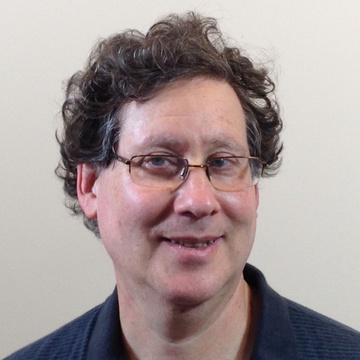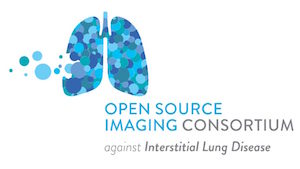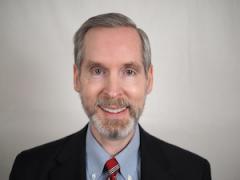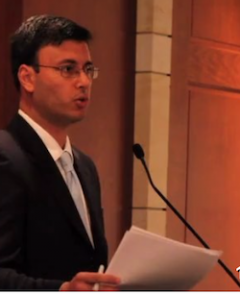artificial intelligence
See the following -
A New Meaning for Connected Health at 2016 Symposium (Part 3)
 The previous section of this article paused during a discussion of the accuracy and uses of devices. At a panel on patient generated data, a speaker said that one factor holding back the use of patient data was the lack of sophistication in EHRs. They must be enhanced to preserve the provenance of data: whether it came from a device or from a manual record by the patient, and whether the device was consumer-grade or a well-tested medical device. Doctors invest different levels of trust in different methods of collecting data: devices can provide more objective information than other ways of asking patients for data. A participant in the panel also pointed out that devices are more reliable in the lab than under real-world conditions. Consumers must be educated about the proper use of devices, such as whether to sit down and how to hold their arms when taking their blood pressure...
The previous section of this article paused during a discussion of the accuracy and uses of devices. At a panel on patient generated data, a speaker said that one factor holding back the use of patient data was the lack of sophistication in EHRs. They must be enhanced to preserve the provenance of data: whether it came from a device or from a manual record by the patient, and whether the device was consumer-grade or a well-tested medical device. Doctors invest different levels of trust in different methods of collecting data: devices can provide more objective information than other ways of asking patients for data. A participant in the panel also pointed out that devices are more reliable in the lab than under real-world conditions. Consumers must be educated about the proper use of devices, such as whether to sit down and how to hold their arms when taking their blood pressure...
- Login to post comments
Affordable COVID-19 Diagnoses for Hospitals: How Open Source Software Helps
 The most common COVID-19 symptoms—such as coughing, fever, and shortness of breath—are shared with many other diseases. Diagnosing a patient accurately is therefore a challenge. Although a diagnosis of COVID-19 might not affect treatment, it would help a hospital predict a patient's trajectory and anticipate the need for urgent intervention. But current tests, relying on blood or mucus samples, are not particularly accurate. In this article, we'll see how open source software can help hospitals make better diagnoses. I'll concentrate on one specific role, and on the ways open source facilitates finding a solution and keeping it affordable. Many aspects of the problem feed into the solution discussed here. The article is based on work by researcher Trevor Grant.
The most common COVID-19 symptoms—such as coughing, fever, and shortness of breath—are shared with many other diseases. Diagnosing a patient accurately is therefore a challenge. Although a diagnosis of COVID-19 might not affect treatment, it would help a hospital predict a patient's trajectory and anticipate the need for urgent intervention. But current tests, relying on blood or mucus samples, are not particularly accurate. In this article, we'll see how open source software can help hospitals make better diagnoses. I'll concentrate on one specific role, and on the ways open source facilitates finding a solution and keeping it affordable. Many aspects of the problem feed into the solution discussed here. The article is based on work by researcher Trevor Grant.
- Login to post comments
College Students Tackle PTSD at First DC Hackathon
 More than 50 college students from across the world gathered this previous weekend at HackDC 2015, the first Hackathon dedicated to crowdsourcing innovative ways to address the serious problem of Post-Traumatic Stress Disorder (PTSD) by creating mobile applications and solutions. The event, which started on Friday, went through Sunday afternoon. Held at the Richard J. Ernst Community Cultural Center in the Annandale Campus of the Northern Virginia Community Colleges (NVCC), HackDC 2015 provided the participants with access to food, sleeping facilities, and showers so that they could work straight through the weekend.
More than 50 college students from across the world gathered this previous weekend at HackDC 2015, the first Hackathon dedicated to crowdsourcing innovative ways to address the serious problem of Post-Traumatic Stress Disorder (PTSD) by creating mobile applications and solutions. The event, which started on Friday, went through Sunday afternoon. Held at the Richard J. Ernst Community Cultural Center in the Annandale Campus of the Northern Virginia Community Colleges (NVCC), HackDC 2015 provided the participants with access to food, sleeping facilities, and showers so that they could work straight through the weekend.
- Login to post comments
Confronting Catastrophic Disasters With 21St Century Technologies
 The unfolding tragedy in the Bahamas demonstrates that the 21st century will be marked by increasingly frequent, often catastrophic disasters of unprecedented scope and scale. Yet again, the unprecedented challenges of disaster management are being met with mostly conventional, labor-intensive, costly, and often inadequately slow response efforts. These 21st-century threats, particularly those that affect livelihood, health, and well-being, deserve the application of 21st-century technologies. Read More »
The unfolding tragedy in the Bahamas demonstrates that the 21st century will be marked by increasingly frequent, often catastrophic disasters of unprecedented scope and scale. Yet again, the unprecedented challenges of disaster management are being met with mostly conventional, labor-intensive, costly, and often inadequately slow response efforts. These 21st-century threats, particularly those that affect livelihood, health, and well-being, deserve the application of 21st-century technologies. Read More »
- Login to post comments
Does Google Glass Have a Place in the Operating Room?
Hospitals are finding innovative ways of adapting the head-mounted computer to healthcare environments. Read More »
- Login to post comments
Health Tap: Intelligent Interface for Patients
 allows patients to connect with doctors online, and additionally hosts an enormous repository of doctors’ answers to health questions. In addition to its sheer size and its unique combination of services, HealthTap is ahead of most other health care institutions in its use of data. I talked with founder and CEO Ron Gutman about a new service, Dr. AI, that triages the patient and guides her toward a treatment plan: online resources for small problems, doctors for major problems, and even a recommendation to head off to the emergency room when that is warranted. The service builds on the patient/doctor interactions HealthTap has offered over its six years of operation, but is fully automated...
allows patients to connect with doctors online, and additionally hosts an enormous repository of doctors’ answers to health questions. In addition to its sheer size and its unique combination of services, HealthTap is ahead of most other health care institutions in its use of data. I talked with founder and CEO Ron Gutman about a new service, Dr. AI, that triages the patient and guides her toward a treatment plan: online resources for small problems, doctors for major problems, and even a recommendation to head off to the emergency room when that is warranted. The service builds on the patient/doctor interactions HealthTap has offered over its six years of operation, but is fully automated...
- Login to post comments
Hot Programming Trends from 2016
 Technology is constantly moving forward—well, maybe not always forward, but always moving. Even for someone who keeps an eye on the trends and their effect on programmers, discerning exactly where things are headed can be a challenge. My clearest glimpse into open source programming trends always comes in the fall when I work with my fellow chairs, Kelsey Hightower and Scott Hanselman, and our fantastic programming committee to sculpt the coming year's OSCON (O'Reilly Open Source Convention). The proposals that we get and the number focused on specific topics turn out to be good indicators of hot trends in the open source world. What follows is an overview of the top programming trends we saw in 2016...
Technology is constantly moving forward—well, maybe not always forward, but always moving. Even for someone who keeps an eye on the trends and their effect on programmers, discerning exactly where things are headed can be a challenge. My clearest glimpse into open source programming trends always comes in the fall when I work with my fellow chairs, Kelsey Hightower and Scott Hanselman, and our fantastic programming committee to sculpt the coming year's OSCON (O'Reilly Open Source Convention). The proposals that we get and the number focused on specific topics turn out to be good indicators of hot trends in the open source world. What follows is an overview of the top programming trends we saw in 2016...
- Login to post comments
How AI, Twitter And Digital Volunteers Are Transforming Humanitarian Disaster Response
On 24 September a 7.7-magnitude earthquake struck south-west Pakistan, killing at least 300 people. The following day Patrick Meier at the [QCRI] received a call from the UN [OCHA] asking him to help deal with the digital fallout -- the thousands of tweets, photos and videos that were being posted on the web containing potentially valuable information about the disaster. Read More »
- Login to post comments
IBM's Watson Wants To Fix America's Doctor Shortage
The supercomputer's greatest opponent may be the American healthcare system Read More »
- Login to post comments
Interstitial Lung Disease (ILD) Experts And Advocates Announce Formation Of Open Source Imaging Consortium (OSIC)
 An international group of leading experts and advocates in the fight against idiopathic pulmonary fibrosis (IPF), fibrosing interstitial lung diseases (ILDs), and other respiratory diseases including emphysematous conditions announced today the formation of the Open Source Imaging Consortium (OSIC). This global, not-for-profit organization is a cooperative and open source effort between academia, industry and philanthropy to enable rapid advances in the detection and diagnosis of these conditions through digital imaging and machine learning.
An international group of leading experts and advocates in the fight against idiopathic pulmonary fibrosis (IPF), fibrosing interstitial lung diseases (ILDs), and other respiratory diseases including emphysematous conditions announced today the formation of the Open Source Imaging Consortium (OSIC). This global, not-for-profit organization is a cooperative and open source effort between academia, industry and philanthropy to enable rapid advances in the detection and diagnosis of these conditions through digital imaging and machine learning.
- Login to post comments
OSEHRA 2015: Chairman of Open Source Health Speaks on the Future of Healthcare at Open Source Summit
Open Source Health Inc...is pleased to announce it’s Executive Chairman, Gary Bartholomew, will present on the main stage at the 2015 OSEHRA Summit in Washington on July 29, 2015. “This is an important summit relating to open source technology in the healthcare industry which is on the verge of a revolution”, states Executive Chairman, Gary Bartholomew, Open Source Health Inc. “We are re-defining the next generation healthcare platform by incorporating big data and artificial intelligence to deliver personalized medicine at the molecular level”.
- Login to post comments



